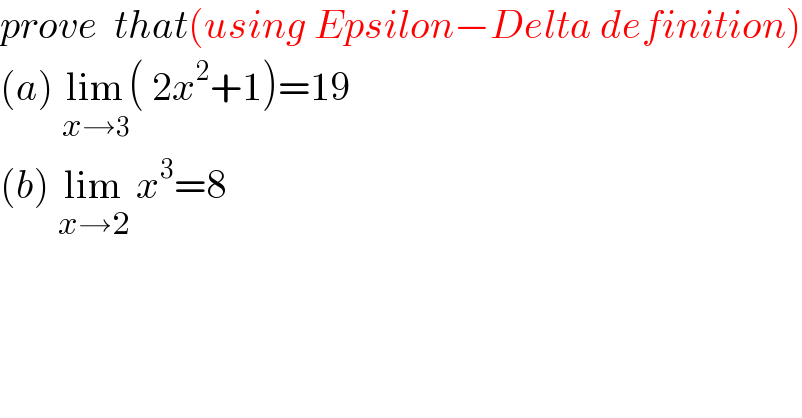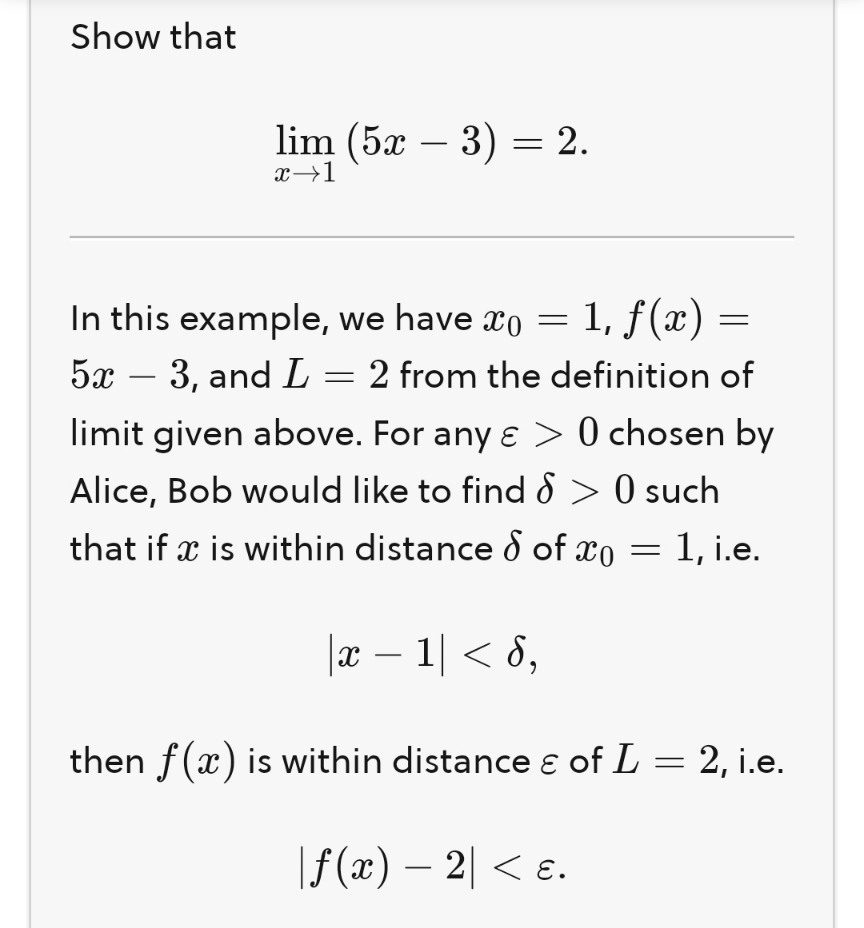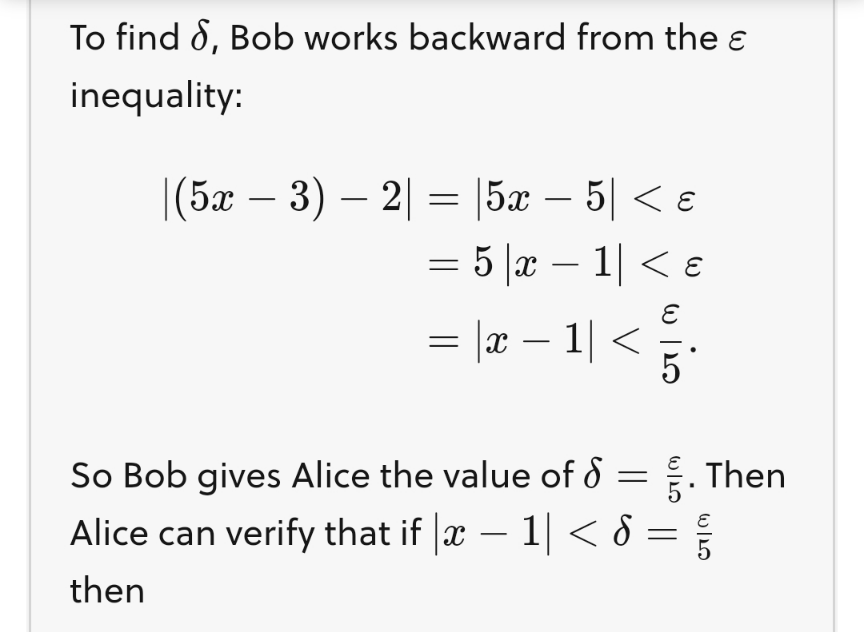
Question Number 186022 by Spillover last updated on 30/Jan/23

$${prove}\:\:{that}\left({using}\:{Epsilon}−{Delta}\:{definition}\right) \\ $$$$\left({a}\right)\:\underset{{x}\rightarrow\mathrm{3}} {\mathrm{lim}}\left(\:\mathrm{2}{x}^{\mathrm{2}} +\mathrm{1}\right)=\mathrm{19} \\ $$$$\left({b}\right)\:\underset{{x}\rightarrow\mathrm{2}} {\mathrm{lim}}\:{x}^{\mathrm{3}} =\mathrm{8} \\ $$
Commented by mr W last updated on 31/Jan/23

$${there}\:{is}\:{no}\:{need}\:{to}\:{post}\:{similar}\: \\ $$$${questions}\:{many}\:{times}! \\ $$
Commented by mr W last updated on 31/Jan/23

$${i}\:{give}\:{you}\:{here}\:{an}\:{example}\:{for}\:{the} \\ $$$${requested}\:\epsilon−\delta−{method}.\:{please}\:{don}'{t} \\ $$$${post}\:{more}\:{such}\:{similar}\:{questions}! \\ $$$${the}\:{solution}\:{is}\:{obvious}. \\ $$
Commented by mr W last updated on 31/Jan/23

Commented by mr W last updated on 31/Jan/23

Commented by mr W last updated on 31/Jan/23

